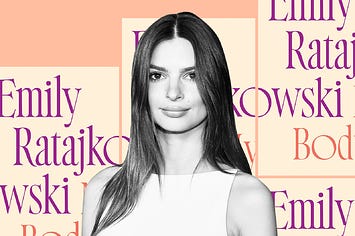Hi friends,
It has been a while since we wrote to you. Ever since COVID ended and life has gone back to “normal” - it has been difficult to come to terms with this “normal”.
As I am moving towards following through with my “real life” duties, this book club (born during a period of such creativity and peace and uncertainty) has become my anchor to remind myself that not everything has to be a hustle(tm).
My disdain for a 9-5 has always remained will continue to remain for the rest of my life. But I have come to terms with the fact that if I really want to do work that will help me grow and also help others then I need to abide my some societal rules. And spaces like our book club make those rules slightly bearable!!!
Can’t wait to see you all!
Love,
Miti
About the book and author (via goodreads):
My Body is a profoundly personal exploration of feminism, sexuality, and power, of men's treatment of women and women's rationalizations for accepting that treatment. These essays chronicle moments from Ratajkowski’s life while investigating the culture’s fetishization of girls and female beauty, its obsession with and contempt for women’s sexuality, the perverse dynamics of the fashion and film industries, and the gray area between consent and abuse.
About Emily:
Emily Ratajkowski is an acclaimed model and actress, an engaged political progressive, a formidable entrepreneur, a global social media phenomenon, and now, a writer. Rocketing to world fame at age twenty-one, Ratajkowski sparked both praise and furor with the provocative display of her body as an unapologetic statement of feminist empowerment. The subsequent evolution in her thinking about our culture’s commodification of women is the subject of this book.
Memorable Quotes:
“I so desperately craved men's validation that I accepted it even when it came wrapped in disrespect.”
“I wonder how many women you've disregarded in your life, written off, because you assumed they had nothing to offer beyond the way they looked. How quickly they learned that the stuff in their heads was of less value than the shape of their bodies. I bet they were all smarter than you.”
“I read once that women are more likely than men to cry when they are angry. I know that women cry out of shame. We are afraid of our anger, embarrassed by the way that it transforms us. We cry to quell what we feel, even when it's trying to tell us something, even when it has every right to exist.”
“It didn’t occur to me that what I wanted from S was the same thing that my mother craved from me: to have someone live in her pain with her.”
“Beauty was a way for me to be special. When I was special, I felt my parents' love for me the most.”
Questions that arose:
How did you think about your own body when you read Emily’s story?
Were you able to empathize with Emily’s worldview? If not, what stopped you?
When thinking about the male gaze, it just stops at a preferred body structure that is said to be pleasing. However, if we were to help Emily broaden the conversation by including a spectrum of individuals (LGBTQIA, Disabled community, POC etc.) how could we do that?
While Emily continuously emphasizes that this book represents her experiences and is limited to that with no real conclusions, do you think that such public personas need to make sense of their narratives as well? What do we think about responsibility in such situations (i.e. when Kim Kardashian publicly said she did a crash diet to fit into her dress and has a following of over 283 million people)?
Links:
Emily Ratajkowski Talks Sexuality, Feminism And ‘Blurred Lines’ | British Vogue - Found this chat interesting - she is as vulnerable in the interview as she is in the book.
Our theme for May-August is Body.
SHELF INDULGENCE PICKS:
May: Demystifying Disability: What to Know, What to Say, and How to Be an Ally
July: My Body
August: The Elephant in the Womb
Happy reading and lots of love,
Miti and Tvisha
P.S. If you’re interested in being a part of Shelf Indulgence, write to us!


